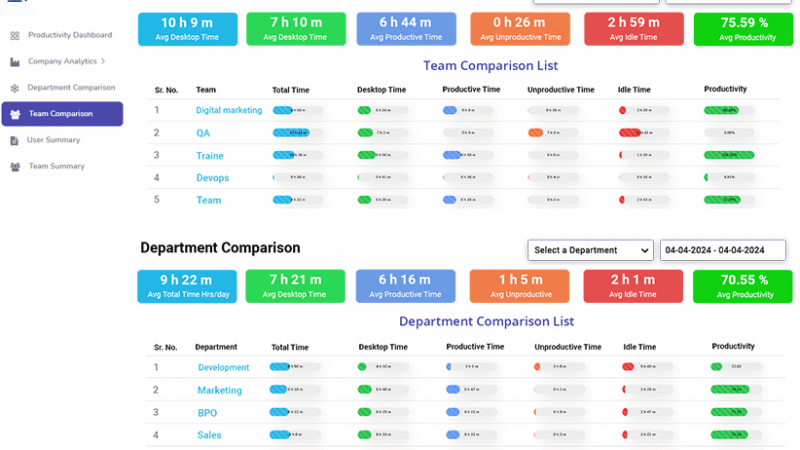Using Salesforce for Enhanced Customer Relationships

Salesforce is indubitably the most popular Customer Relationship Management (CRM) platform globally, which allows companies to manage the interactions with customers, optimize the sales rate, and enhance the productivity of the business overall. With its Software-as-a-Service (SaaS) approach, Salesforce offers scalability and flexibility with instant insights and thus is the architect of choice for all types and sizes of enterprises. The Salesforce functions vary from automating sales to AI-powered analytics, which have seen Salesforce develop to become a holistic business platform, outside of CRM.
Basic construction of Salesforce
Salesforce operates on a multi-tenant architecture that grants efficiency, scalability and the safety of the data. This architecture enables the sharing of the infrastructure among many customers (tenants) whilst ensuring isolation and high security of their data. To further know about it, one can visit the Salesforce Training Institute. The main architecture features are the following:
- Multi-Tenancy: Every customer is using the same infrastructure, but a separation of data is maintained.
- Metadata-Based Platform: It allows faster customisation without touching the underlying system.
- APEX and Visualforce Salesforce customisation that includes its proprietary programming language and UI platform.
- Integration Capabilities: integrates with other systems through REST, SOAP interface, as well as MuleSoft.
- Cloud-Based Access: Can be accessed on any device with secure authentication.
Salesforce Clouds
Salesforce provides cloud solutions based on business needs and specific to individual industries or functions. All clouds offer specific tools and features for specific business processes. Significant Salesforce Clouds are the following:
- Sales Cloud: Lead, opportunity and pipeline automation.
- Service Cloud: It offers case management, self-service, and AI-based customer care.
- Marketing Cloud: Provides customised customer experiences, email, as well as social media.
- Commerce Cloud: It provides AI-based personalisation to e-commerce solutions.
- Health Cloud & Financial Service Cloud: Customised to financial services and healthcare.
- Experience Cloud: Provides portals with customers and partners, and employees.
Salesforce DE
With Salesforce, one can have an environment with strong development of applications and extensions. There are declarative tools (also called click-based) and programmatic (also known as code-based) tools that developers use to fulfil the business needs. The main tools of development are the following:
- Lightning App Builder: Drag-and-drop app-development and workflow environment.
- Apex Programming Language: Object-oriented language used to customise business logic.
- Visualforce: diagram to develop custom interfaces.
- Lightning Web Components (LWC): State-of-the-art JavaScript-based add-ons.
- AppExchange Marketplace: Has prebuilt apps and integrations available in thousands.
Integration and APIs
This is because Salesforce is an enterprise ecosystem hub due to its capacity to integrate. It is easy to connect to any third-party applications, ERP systems and external services. Integration Options include the following:
- REST and SOAP API: Allow the secure exchange of data between and among applications.
- Bulk API: It can be used to support bulk data migration and processing.
- Streaming API: Sends events in real-time.
- MuleSoft Anypoint Platform: It offers high-tech integration and API management.
- Heroku: Here, the developer can create scalable apps that are combined with Salesforce data.
Salesforce Analytics and AI
Salesforce is built to go more than CRM with its own analytics and artificial intelligence embedded. Such capabilities can assist businesses in knowing more and coming up with evidence-based choices. The features of key analytics are:
- Tableau CRM (previously Einstein Analytics): Delivers superior dashboards and reports.
- Einstein AI: Provides sentiment analysis, predictive lead scoring and suggests next-best actions.
- Data Integration: Links Salesforce data to 3rd-party BI.
- Forecasting Tools: Helps to create pipeline visibility through AI forecasts
- Real-Time Analytics: Provides customer and sales real-time.
Security and Compliance in Salesforce
Security Salesforce architecture rests on the principle of security, guaranteeing adherence to the international dependability standards and preservation of confidential customer information. There are several security controls that Salesforce offers. Security features: There are as following security features:
- Role-Based Access Control (RBAC): Sets user permissions and access to data.
- Two-Factor Authentication (2FA): Bolster the security of the login.
- Shield Platform Encryption: Offers field-level and file encryption
- Audit Trails and Monitoring: monitors the use of the system by users.
- Compliance Standards: GDPR and HIPAA, as well as SOC, ISO certified.
Benefits of Salesforce
Salesforce covers a very broad list of benefits, which allows the organisations to attain efficiency and increase customer interaction and recruit abilities to move all over the globe with larger operations. Major IT hubs like Delhi and Noida offer high-paying jobs for Salesforce professionals. Therefore, enrolling in the Salesforce Training in Delhi can help you start a career in this domain. The benefits are the following:
- Scalability: Fits any business, ranging from startups and enterprises.
- Customisation: Customizable workflow and application building tools.
- Improved Customer Experience: Single experience on customer interactions across channels.
- Shorter Time-to-Market: Swift Creation of Apps with a declarative language.
- Constant Innovation: Constant updates and new capabilities, and AI development.
Conclusion
Salesforce is not only a CRM platform but an entire digital transformation platform where sales, service, marketing, and analytics are all integrated into a great ecosystem. It is an influential solution to current businesses with its scalable architecture, AI-based capabilities and numerous integration possibilities. Many institutions provide Salesforce Testing Course, and enrolling in them can help you start a career in this domain. In this context, Salesforce will be a major player in the future of enterprise cloud computing as companies persist in prioritizing the customer experience and approaches that rely on data to drive their efforts.






